
Advocating for policies that decentralize economic power. Antimonopoly. Pro-local. Co-director at the Institute for Local Self-Reliance @ILSR
2 subscribers
How to get URL link on X (Twitter) App

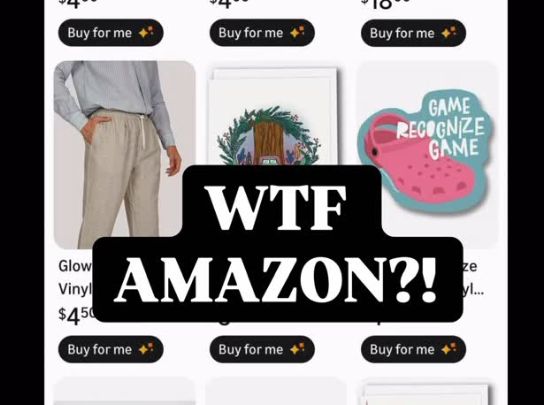
 2. Last year, Amazon launched “Buy For Me.” Shoppers see AI-generated listings of items otherwise not sold on Amazon. They can click to buy them within the Amazon checkout. Amazon’s AI agent then makes the purchase on the small business's site using a auto-generated email.
2. Last year, Amazon launched “Buy For Me.” Shoppers see AI-generated listings of items otherwise not sold on Amazon. They can click to buy them within the Amazon checkout. Amazon’s AI agent then makes the purchase on the small business's site using a auto-generated email. 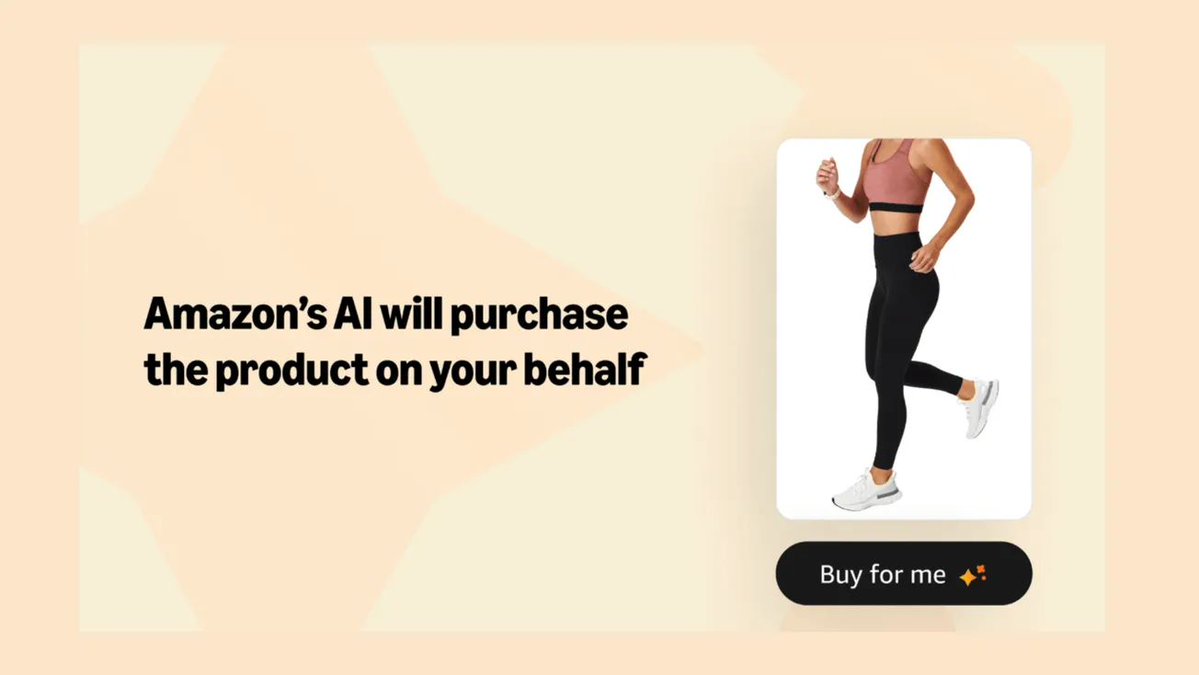
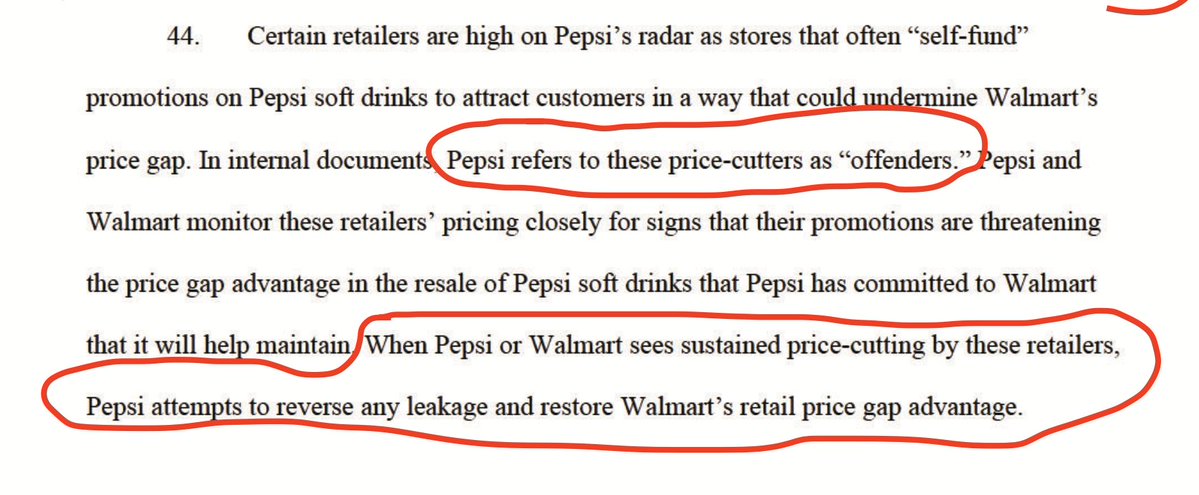
 2. The evidence we can now see demolishes the core argument made by opponents of the Robinson-Patman Act. They claim not enforcing the law has led to lower prices. But this new material shows the opposite: Pepsi forced all grocers besides Walmart to raise their prices.
2. The evidence we can now see demolishes the core argument made by opponents of the Robinson-Patman Act. They claim not enforcing the law has led to lower prices. But this new material shows the opposite: Pepsi forced all grocers besides Walmart to raise their prices.

https://twitter.com/stacyfmitchell/status/1952717552385245369
 2. The evidence shows that Pepsi punished Walmart’s competitors if they discounted Pepsi products. Pepsi would increase their wholesale cost or eliminate promotional payments to force Walmart's rival to raise its price to consumers.
2. The evidence shows that Pepsi punished Walmart’s competitors if they discounted Pepsi products. Pepsi would increase their wholesale cost or eliminate promotional payments to force Walmart's rival to raise its price to consumers. 

 2. Most of the complaint is heavily redacted, including the name of the favored retailer (reportedly Walmart). The complaint alleges that Pepsi gave a favored big-box retailer illegal price breaks — while raising prices to competing independent grocers and their customers.
2. Most of the complaint is heavily redacted, including the name of the favored retailer (reportedly Walmart). The complaint alleges that Pepsi gave a favored big-box retailer illegal price breaks — while raising prices to competing independent grocers and their customers. 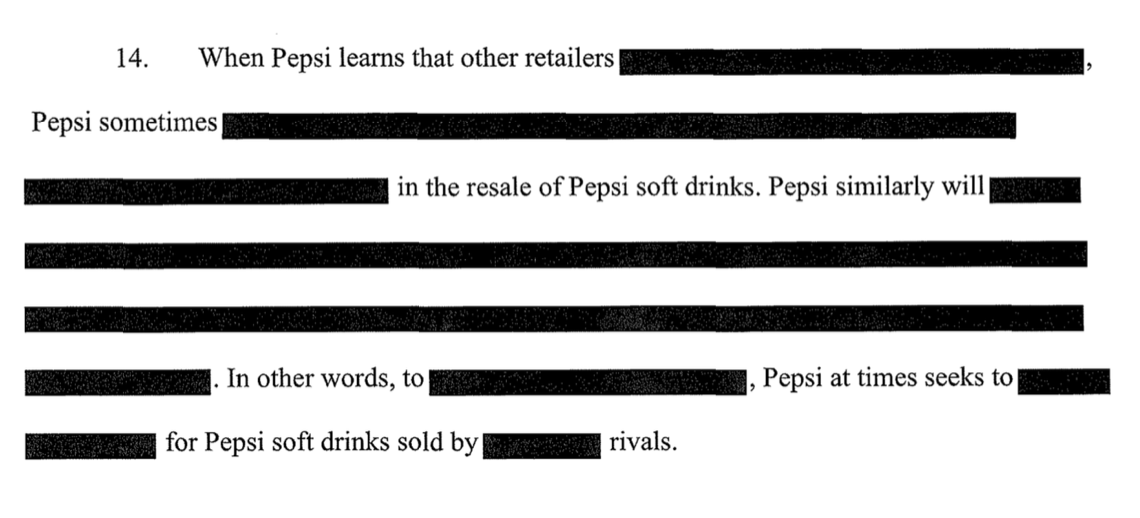
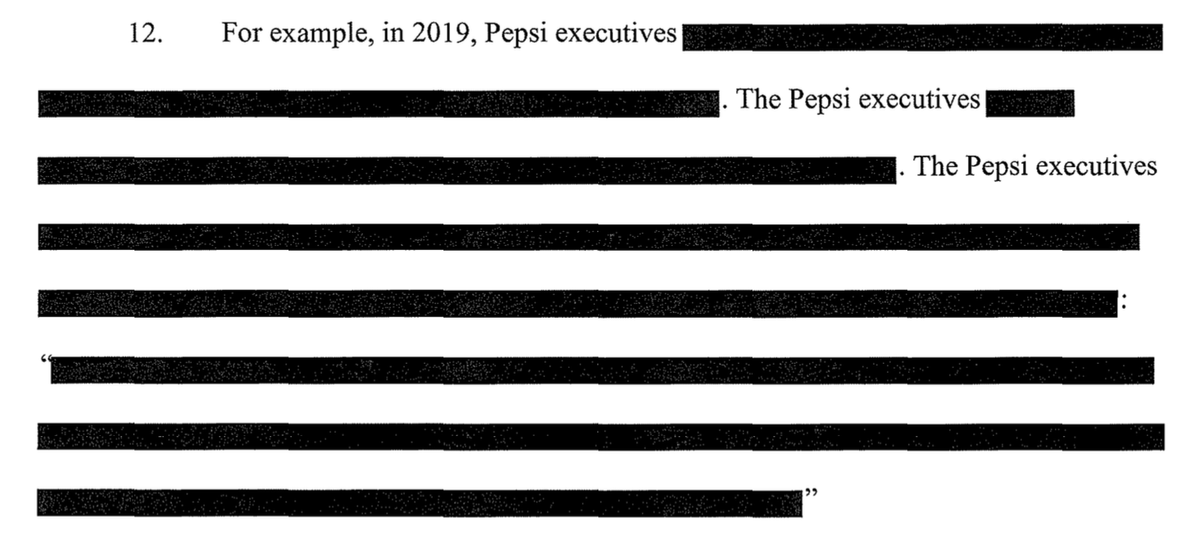

 2. Back in the 19th century, states were the first on the scene when corporations started to amass too much power. They came up with the first antitrust laws, which inspired federal law.
2. Back in the 19th century, states were the first on the scene when corporations started to amass too much power. They came up with the first antitrust laws, which inspired federal law. 


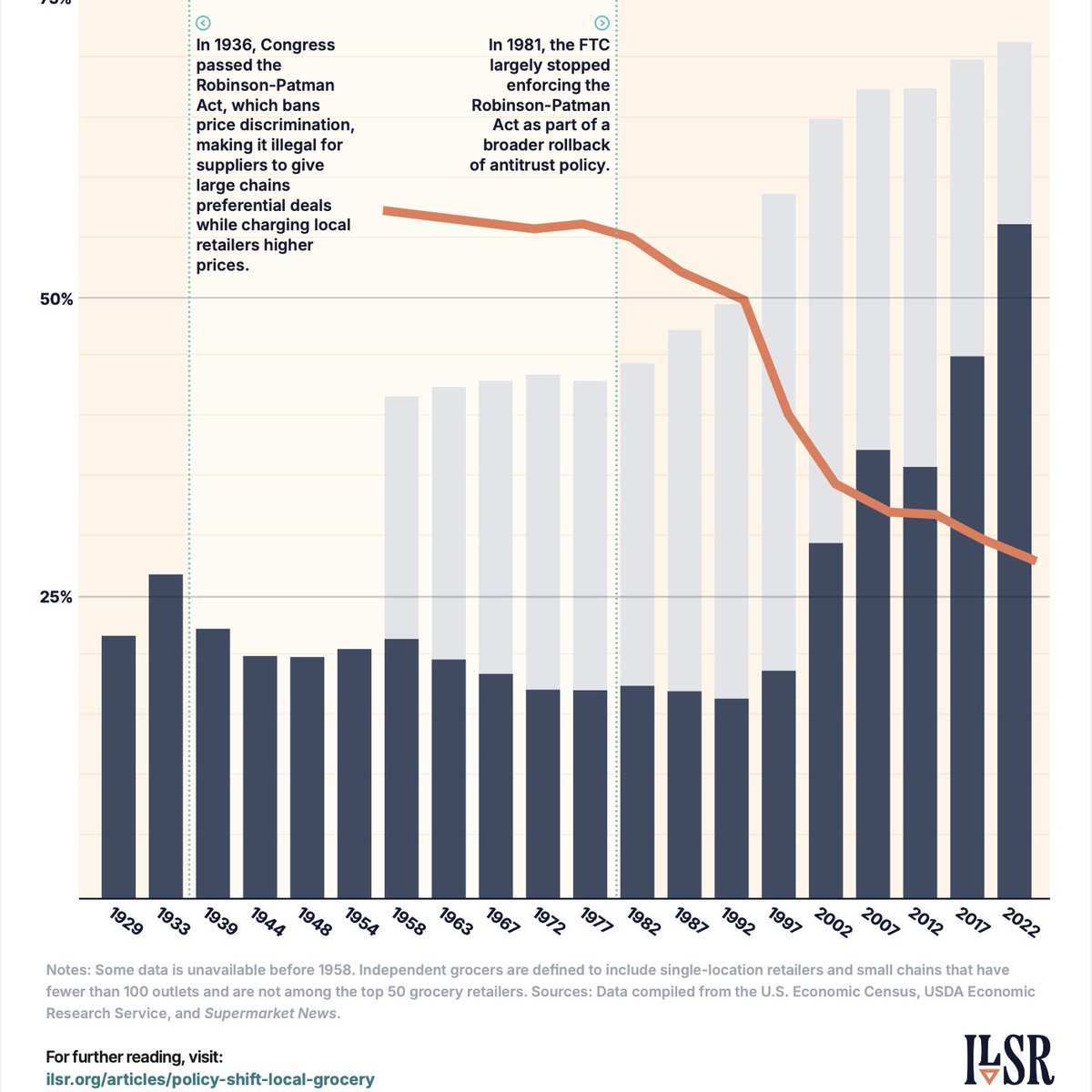
 2. Today, when growing corporate concentration seems to be an inevitable fact in every sector, it’s remarkable to look back at the grocery industry in the period from the 1930s to the 1980s.
2. Today, when growing corporate concentration seems to be an inevitable fact in every sector, it’s remarkable to look back at the grocery industry in the period from the 1930s to the 1980s.

 2. The judge finds that the FTC’s evidence is sufficient to make a reasonable inference that Amazon is liable for monopolizing the market. This was true of the agency’s various claims under the Sherman Act.
2. The judge finds that the FTC’s evidence is sufficient to make a reasonable inference that Amazon is liable for monopolizing the market. This was true of the agency’s various claims under the Sherman Act. 
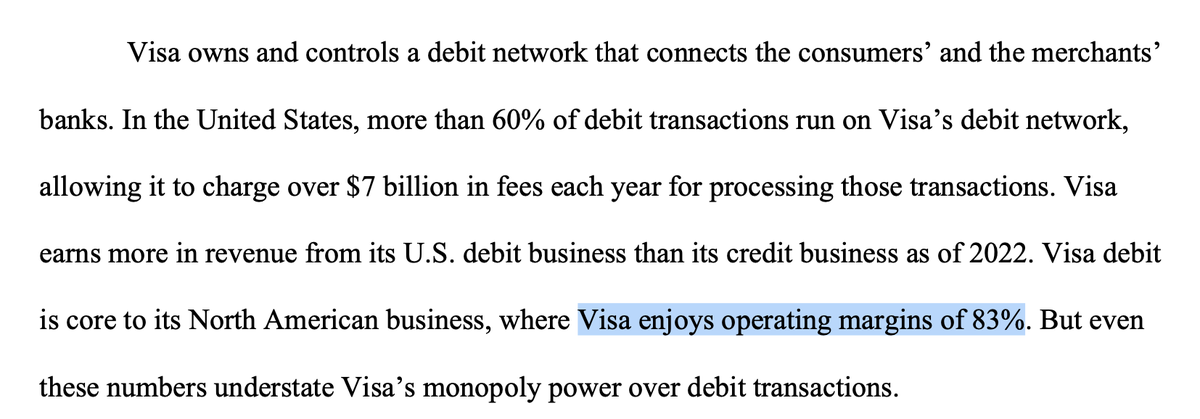


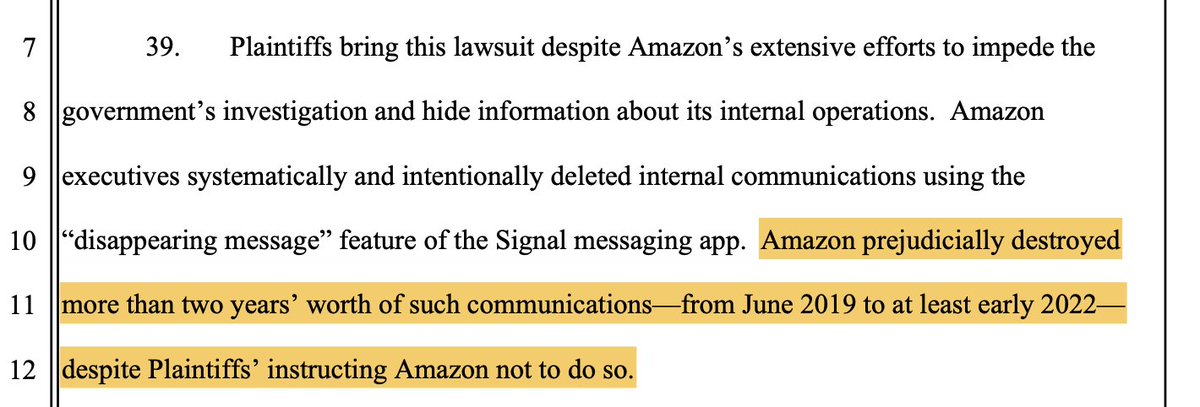
 2. Here’s an exec saying that blocking sellers from offering lower prices on other sites is "a dirty job, but we need to do it."
2. Here’s an exec saying that blocking sellers from offering lower prices on other sites is "a dirty job, but we need to do it." 

 Often people have to fight City Hall pretty hard to get these measures passed.
Often people have to fight City Hall pretty hard to get these measures passed.https://twitter.com/linakhanFTC/status/16110258953885777922. First, non-compete agreements act as a kind of barrier-to-entry for would-be entrepreneurs by preventing workers from leaving their jobs to start their own, competing businesses.